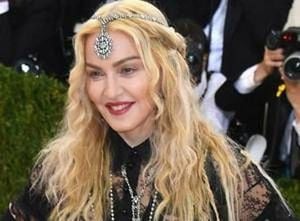A French Muslim sprinter who recently showcased his skills at the 2024 Olympic Games has faced suspension due to inflammatory social media posts.
Muhammad Abdallah Kounta, aged 29, was announced suspended by the French Athletics Federation (FFA) amid claims of antisemitic and anti-Israel commentary on X, previously known as Twitter.
The Minister of Sports, Amelie Oudea-Castera, emphasized the severity of Kounta's posts, stating they are both shocking and unacceptable.
According to Oudea-Castera, the federation’s president confirmed the suspension and has involved public prosecutors, along with the federation's disciplinary committee, to review the situation.
The suspension came after Kounta's controversial tweets from 2021 to 2024 were highlighted, which included expressions of support for Hamas, trivialization of the Holocaust, and other hateful messages.
One notable incident saw Kounta describe France derogatorily as a “country of degenerate racists”, and he had also shown support for the ideology of Hassan al-Banna, founder of the Muslim Brotherhood.
Following the controversies, Kounta took to social media, wrapping himself in the French flag, and proclaimed his identity as “French, Muslim, and proud.”
He later offered apologies for any offense caused, stating his opposition to genocide and all forms of racism.
“People have taken some of my comments out of context, portraying me unfairly,” Kounta argued, defending his love for France.
Since the beginning of the recent tumultuous events surrounding the Israel-Hamas conflict, France has experienced a drastic increase in antisemitic incidents.
The surge has led to increased scrutiny of public statements made by athletes and their responsibilities toward promoting unity and respect at official events.
The FFA issued reminders to all athletes about maintaining adherence to republican values and ensuring their personal opinions don’t undermine the unity of French athletics.
Previously, Kounta made his first Olympic appearance during the 2020 Tokyo Games and competed during the men’s and mixed 4x400m relay events in Paris.
France’s response to Kounta’s comments reflects the country's growing concerns about rising antisemitism and the public responsibility of athletes.
The discourse surrounding Kounta's posts has sparked dialogue about freedom of expression versus accountability, especially during significant international platforms like the Olympics.
French public officials and athletic bodies are grappling with the notion of how athletes express personal beliefs without conflicting with the values of their sportsmanship.
This incident underscores the delicate balance athletes must maintain between personal conviction and the collective image of their teams and countries.
The fallout from Kounta's posting is part of larger societal issues concerning antisemitism and raises questions about how to handle derogatory remarks linked to national identity.
While the FFA has acted quickly, the case serves as both a cautionary tale and learning opportunity for athletes set to represent their countries globally.
At the heart of this controversy lies the question of how private opinions expressed publicly impact national pride and unity.
The reaction to Kounta’s social media activity illustrates the drawing line between acceptable discourse and inflammatory speech, particularly from individuals as highly visible as Olympians.
This occurrence arrives during heightened sensitivity to socio-political sentiments expressed publicly, pushing for athletes to tread carefully with their rhetoric.
Overall, the suspension of Kounta reaffirms the significance of ethical standards and the obligations sports figures have toward fostering inclusive and respectful dialogues.
The incident highlights the responsibility athletes carry not only as competitors but also as representatives of their nations and as influencers on social media.
Given the fierce debates surrounding the Israel-Hamas war, misunderstandings can easily emerge from statements made on digital platforms.
With the Olympics often seen as a stage for promoting unity across nations, Kounta's situation complicates this narrative, emphasizing the challenges faced when personal beliefs collide with national representation.
Many are now watching closely to see how other athletes react to similar situations, setting the tone for future engagements on social issues.
Through Kounta's case, the interplay between sports, politics, and personal convictions continues to evolve, warranting scrutiny from both fans and political figures alike.
France must navigate these waters carefully to uphold values of tolerance and inclusivity, especially leading up to such global events.
It's clear this situation has ignited broader discussions on social media conduct, sensitivity toward historical traumas, and the responsibilities athletes bear as public figures.
How Kounta's case is resolved will likely influence the approach of sports federations globally as they grapple with similar issues.
The balance between personal expression and communal responsibility remains fraught with challenges, particularly as societal divides deepen.
Looking forward, increased emphasis on the guidelines governing athlete communications may emerge within sports federations worldwide.
This case highlights the necessity for awareness, dialogue, and policy development aimed at fostering respectful exchanges and promoting harmony.
Even as the dust settles, the overarching themes of accountability and respect for communal sentiments will carry significant weight moving forward.
While the world of athletics celebrates competition, the lines of personal views must align with the overarching values of unity and respect across cultures and nations.
The discussion about Kounta’s tweets may just be the beginning of challenging conversations within athletics and beyond.



